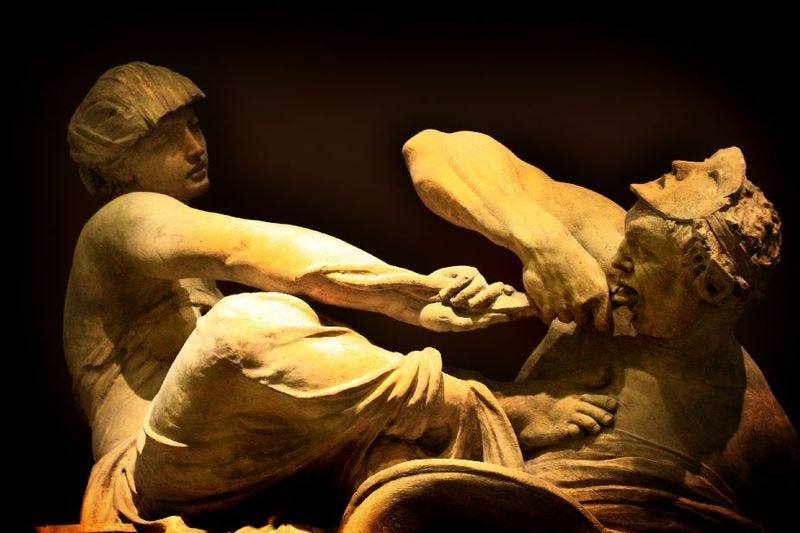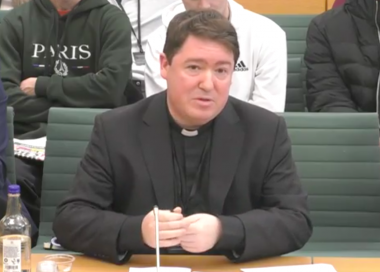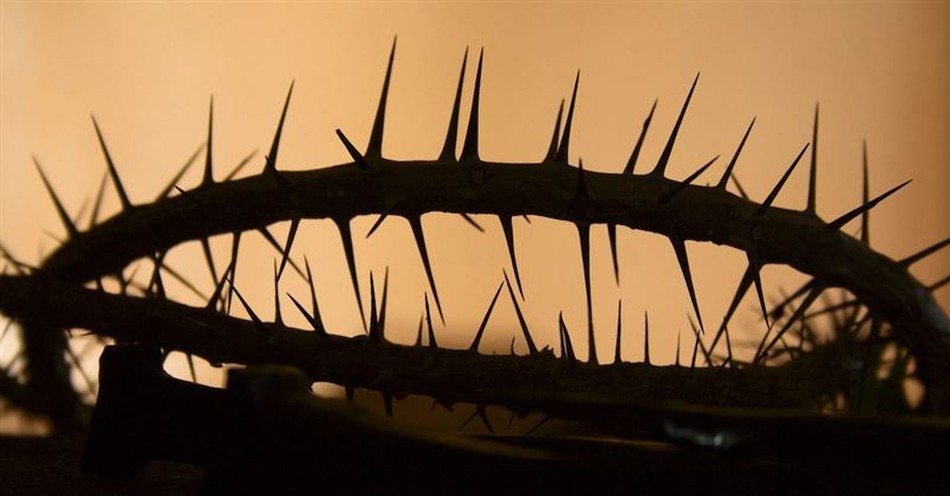Truth and Falsehood; sculpture by Alfred Stevens, 1857-66 For the Jewish world, these are nightmarish, hallucinatory times. Israel is fighting a hydra-headed, genocidal enemy that not only slaughtered 1,200 women, children and men and took more than 240 hostages but intends to repeat such atrocities until Israel is destroyed.
Yet instead of being supported in its attempt to prevent a second holocaust of the Jews, Israel now finds itself demonised. Its overwhelmingly just war of self-defence has been turned into a war crime. The victims of pure evil are themselves depicted as evil and turned into the pariahs of the world.
It’s as if both Nazism and Stalinism, having been defeated in their own countries by the west decades ago, have united to achieve a posthumous victory by brainwashing millions of westerners with Soviet-style doublespeak and Nazi-style Jew-hatred.
Untold numbers in the west now believe the demonstrable lies being pumped out by Hamas and parroted by its patsies and fellow-travellers at the UN, in powerful “human rights” charities and the media.
These lies frame the images of suffering in Gaza that are being relentlessly transmitted on TV and social media. As a result, millions now believe that the Israelis are deliberately starving Gaza’s people by preventing aid from coming in; that they have wantonly killed more than 30,000 civilians who are mostly women and children; and that they are attacking hospitals and causing helpless patients to die.
All of this is, of course, not only false but the very opposite of the truth.
The West Point military expert John Spencer has written that Israel’s opponents are simply erasing Israel’s “remarkable, historic new standard” for warfare.
“By my analysis,” he writes, “Israel has implemented more precautions to prevent civilian harm than any military in history.” It has done so, he says, at considerable cost to its own ability to win the war by telegraphing almost every move ahead of time so civilians can relocate. This nearly always cedes the element of surprise, allowing Hamas to move both its leaders and the hostages to escape IDF detection.
Yet this astonishing IDF record is being studiously ignored while patently obvious lies are believed instead.
Currently, video footage shows plentifully supplied food markets in southern Gaza. Bulletins regularly published by COGAT, Israel’s humanitarian coordinator for Gaza, attest to hundreds of aid trucks regularly crossing into the Strip.
There are problems, however, with distribution by aid agencies within Gaza. These have caused shortages, particularly in the north, with Hamas stealing aid to replenish its own stocks or selling aid on the black market at prohibitively inflated prices.
All these facts are ignored. Instead, Israel is accused of causing “famine” and “starvation”.
Casualty figures put out by the Hamas-run Gaza Health Ministry claim that more than 30,000 civilians have been killed, of whom 70 per cent were women and children. Expert number-crunchers say that the most basic analysis shows these figures are bogus.
Abraham Wyner, professor of statistics and data science at the University of Pennsylvania, has written that the daily totals increase too consistently to be real.
An article in Fathom by a population models expert, a bio-mathematician and an international lawyer explains that the Hamas numbers are “statistically impossible,” suggesting that the composition of unregistered deaths has been fabricated to inflate the proportion of women and children who have been killed.
Yet the Hamas figures have been accepted as fact by western media, politicians and officials, and are constantly repeated.
Then there’s the astonishing situation at Gaza’s Shifa Hospital, where hundreds of combatants have been arrested or killed while firing on Israeli soldiers even from the hospital’s burns and maternity units. Out of 800 total suspects at Shifa, says the IDF, 500 have confirmed ties to Hamas or Islamic Jihad.
The use of hospitals for military purposes is a war crime. The hijack of Shifa by combatants using its patients as human shields and cannon fodder should cause global outrage.
Yet this has been totally ignored in western media coverage. Instead, despite IDF initiatives in bringing doctors into Shifa to treat its patients and ensuring that deliveries of food and water have continued, Israel is being accused of causing patients to suffer and die.
In Britain, the relentless demonisation of Israel is fuelling the institutionalisation of eye-watering antisemitism.
Two Israeli brothers who survived the Supernova music festival massacre and came to Manchester to raise support for survivors of the pogrom were stopped at the airport by border guards. They were detained for two hours, spoken to harshly when they objected and, upon being released, were told by one of the officers: “They had to make sure that you are not going to do what you are doing in Gaza over here.”
A nine-year-old Jewish child wearing a kippah and tzitzit who was being treated for a rare blood disorder with blood transfusions every two months at the Royal Manchester children’s hospital was forced by nurses wearing “Free Palestine” badges to lie on the floor while still attached to a canula. The child is said to be terrified to return to hospital unless he hides his Jewish identity.
The Jewish Chronicle has reported that British doctors in hospitals around the country have defended the October 7 atrocities, claimed Britain is an “Israeli colony,” accused Israel of controlling the British government and denied the Shoah.
The number of doctors referred to Britain’s medical regulator on grounds of antisemitism, which stood at four in 2021 and zero in 2022, shot up to 66 in the four months following the Hamas pogrom.
Appallingly, instead of calling out all the lies about Israel, the Biden administration and the British government are actually promoting them.
Claiming that “too many” innocent civilians have been killed by the IDF and that Israel is preventing aid from getting into Gaza, both the US and Britain have turned against Israel at the UN and are treating it as a rogue state committing human rights abuses.
President Joe Biden has conditioned military aid to Israel on the requirement that it submits a report within 45 days proving compliance with international law. Britain’s Foreign Secretary, Lord Cameron, has threatened to stop arms sales to Israel unless it allows the Red Cross access to Hamas detainees.
Seeking to explain this vicious treatment by Israel’s treacherous allies, commentators cite the need to appease American Muslims and radical Democrats in the US presidential election; the anti-Israel Obama-era retreads in the Biden administration; and in Britain, the outsourcing of foreign policy by the inexperienced Prime Minister Rishi Sunak to Cameron, who shares the poisonous disdain for Israel that’s been entrenched in the Foreign Office for decades.
Plausible as those reasons are, there’s also a deeper issue. Israel’s current Orwellian treatment at western hands should be no surprise because this treatment has been Orwellian for decades.
Under existential attack since its rebirth in 1948, Israel has repeatedly been forced by America and the west into making lethal concessions to its would-be destroyers that have left it in a state of permanent siege and under repeated attack.
America and the west have feted Palestinian leaders as statesmen even while those leaders brainwash generations into believing it’s their highest duty to kill every Jew. The Americans have armed and trained Palestinian police officers who have subsequently mounted terrorist attacks on Israelis.
The “two-state solution” is being insisted upon by the US and Britain, even though it has been repeatedly offered to the Palestinians who have rejected it because their aim is to wipe Israel off the map.
The reason America and Britain have left Israel to swing in the wind is that they think the genocidal Palestinians have a legitimate case. The shocking treatment of Israel today by its so-called allies is merely a continuation of that decades-old Orwellian nightmare.
Jewish News Syndicate


.png)
.jpeg)
.jpg)



.jpeg)


.jpeg)